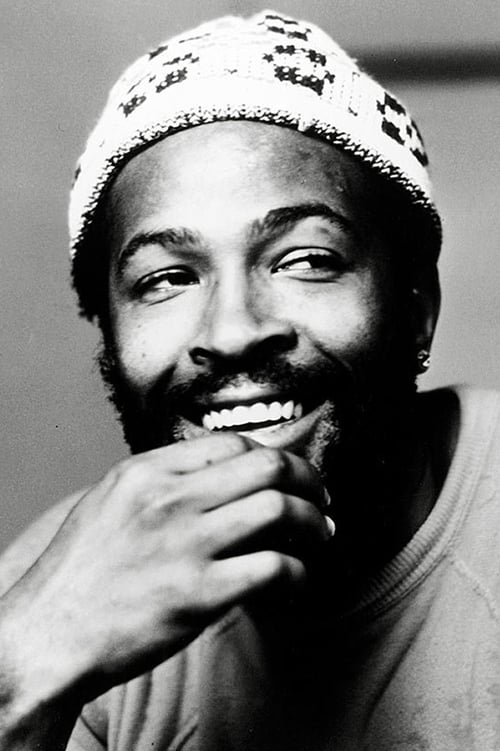
Marvin Gaye
Nascimento : 1939-04-02, Washington, District of Columbia, USA
Morte : 1984-04-01
História
Marvin Pentz Gay Jr. was born on April 2, 1939, the second oldest child of domestic worker Alberta Gay and Pentecostalist minister Marvin Gay Sr. From an early age, Gaye took an ardor for singing; he believed that this vocation helped him through his severely troubled youth. Gaye's sister has stated that Gay Sr. beat Marvin often and into his teens. At 17, Gaye became a high school dropout, enlisting in the U.S. Air Force. Disgruntled by the humble labor he had to do, Gaye pretended to have mental illness. The service authorized him a "General Discharge." Gaye returned to the D.C. area and set up a vocal quartet with a friend called The Marquees. Gaye's first vocal recording as a lead singer, "Mama Loocie," was recorded with Harvey and the New Moonglows, which was composed of Harvey Fuqua and members of The Marquees. After the group's dissolution in 1960, Gaye moved to Detroit. Performing at Motown head Berry Gordy's house, Gaye drew Gordy's interest; the ensuing sale of Fuqua's part of Gaye's contract led to Gaye signing with Motown company Tamla. Gaye initially wanted a career as a standards and jazz performer. After numerous album releases and chart successes, in 1971, Gaye saw the release of his concept album What's Going On. It was his first platinum-selling album and earned him much critical praise. His next project would be the score and soundtrack to the 1972 blaxploitation film, Trouble Man. In 1981, advised by music promoter Freddy Cousaert, tax exile Gaye moved into Cousaert's Ostend apartment in Belgium. Staging a personal recovery, Gaye penned the song "Sexual Healing," which would be his greatest hit, eventually doing ten weeks in the top position on the Hot Black Singles chart. The song was the first single from the album Midnight Love, which sold in excess of six million units. Gaye then went out on the Sexual Healing Tour, starting April 18, 1983, which would be his last tour. Around halfway through the year, he ended the tour, suffering paranoia stemming from cocaine use. Gaye then relocated to his parents' residence in L.A. Marvins Sr. and Jr. had growing conflict between them for months. Relatives and friends felt that Marvin Jr. was sometimes suicidally driven. One day, Gaye attempted to follow this urge with a leap from a hurtling sports car. He only received slight bruises. On April 1, 1984, Marvin Sr. yelled at Alberta about a lost insurance policy letter; they'd argued about the form for days. A severe thrashing then ensued between the two Marvins, with Marvin Sr. on the receiving end. Minutes thereafter, Marvin Sr. entered Gaye's bedroom, clutching a .38 pistol that had been bought for him by Gaye, and shot his son once in his heart and once in the shoulder. Marvin Jr.'s body was transported to California Hospital Medical Center, where at about 1 P.M., Gaye was pronounced dead on arrival. Celebrities across the world were shocked by the news of Gaye's untimely passing, from Smokey Robinson to Al Sharpton. Following Gaye's death, his awards and honors have flourished -- a fitting legacy for the man titled Prince of Soul.
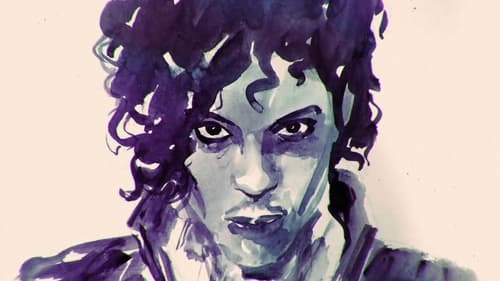
Music icons including Chuck D, Orianthi, and Chaka Khan recount never-before-told stories of Prince the performer and Prince the man, and how his unique creativity, in turn, inspired them to do their best work.
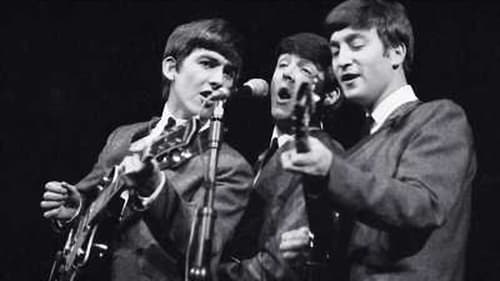
Self (archive footage)
A história do icônico programa musical britânico dos anos 1960, "Ready Steady Go!", um programa que revolucionou a televisão para as crianças e coincidiu com a tremenda explosão do talento pop britânico que conquistou o mundo.
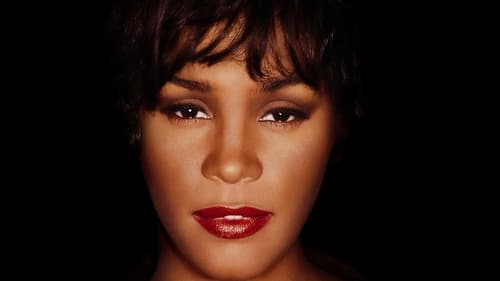
Self (archive footage)
Whitney Houston foi a primeira cantora solo a atingir sete vezes consecutivas o topo das paradas americanas, além de ter seus discos vendidos mais de 200 milhões de vezes. Por trás da fama e carreira estrondosa, existia, no entanto, uma mulher tomada por traumas e vícios que, combinados a uma série de rumores e escândalos propagados pela mídia, arruinaram não só sua profissão, mas principalmente sua vida pessoal.

Himself (archive footage)
DJ Cinema is mixing up blends with artists like Biggie, Nas, Jay-Z, AZ, Rick Ross, Fabolous, 50 Cent and Jadakiss.

Self (archive footage)
When Marvin Gaye died in 1984, he left behind one of the great legacies in American music. More than a superb vocalist and subtle composer, he was a visionary who expressed the tenor of his times. Both radical and romantic, a self-taught singer with a flair for autobiographical revelation, he thrived on confession and loved candor.

Self (archive footage)
Documentary looking at how Detroit became home to a musical revolution that captured the sound of a nation in upheaval. In the early 60s, Motown transcended Detroit's inner city to take black music to a white audience, whilst in the late 60s suburban kids like the MC5 and the Stooges descended into the black inner city to create revolutionary rock expressing the rage of young white America. With contributions from Iggy Pop, Alice Cooper, George Clinton, Martha Reeves, John Sinclair and the MC5.

Self (archive footage)
Jacques Peretti sets out to find out what happened to the game that obsessed him as a kid. In this documentary, he presents an eye-opening account of the sport's heady popularity in the 1970s and 1980s.

Himself
The definitive DVD collection of one of America's greatest stars. Issued with the full cooperation of the Marvin Gaye estate, this is the first official DVD anthology of classic archival television performances by a Motown artist. Features Marvin Gaye performing his biggest Motown hits, from "Hitch Hike" to "Let's Get It On" and more, in original classic clips from television and film.

self

Self (archive footage)
Discover how television has reflected the African American experience in this retrospective of the medium's first half-century. Actors, writers and historians discuss the image of black America on television from Amos and Andy to the present day. The interviews accompany clips from groundbreaking shows and performances by entertainment pioneers that create a timeline of the portrayal of African Americans throughout TV history.

Himself
20 Videoclips from the 80's

Himself
O show do festival de Jazz de Montreux conta com os grandes hits "Let's Get It On", "Ain't No Mountain High Enough", "What's Going On" e "I Heard It Through the Grape Vine".

Himself
Mother Popcorn - James Brown What's The Use Of Breaking Up - Jerry Butler MacArthur Park - Della Reese Yester-Me, Yester-You, Yesterday - Stevie Wonder Nowhere To Run - Martha Reeves & The Vandellas Nothing But Heartaches - The Supremes Ain't That Peculiar - Marvin Gaye Goin' To A Go-Go - Smokey Robinson & The Miracles Don't Mess With Bill - The Marvelettes Something About You - The Four Tops River Deep, Mountain High - Mary Wilson It's a Man's Man's Man's World - James Brown Everyday People - Sly & Family Stone

Himself
Compilation of DTV music videos from on The Disney Channel, combining tunes from the 1940s through the 1960s with footage of Disney animation.

Self
Motown 25: Yesterday, Today, Forever is a 1983 television special produced by Suzanne de Passe for Motown Records, The show was also co-written by de Passe along with Ruth Adkins Robinson who would go on to write shows with de Passe for the next 25 years, including the follow up label tributes—through "Motown 40," Buz Kohan was the head writer of the threesome. The program was taped before a live studio audience at the Pasadena Civic Auditorium in Pasadena, California on March 25, 1983,[1] and broadcast on NBC on May 16. Among its highlights were Michael Jackson's performance of "Billie Jean", a Temptations/Four Tops "battle of the bands", Marvin Gaye's inspired speech about black music history and his memorable performance of "What's Going On", a Jackson 5 reunion.

In 1981, Marvin Gaye, the all time champion of soul music, took refuge in Ostend, a little town located on the Belgian coast. Marvin’s choice to lay anchor in Ostend was totally unexpected, not to say incredible. Twenty years after the making of a first 29 minute film entitled “Marvin Gaye Transit Ostend”, I decided to make this second documentary film. It’s my way of bringing to life the picture Marvin Gaye dedicated to me:

Himself
Documentary on Marvin Gaye made during his stay in Belgium, Ostende

Self
If ever there’s a moment that brilliantly and perfectly illustrates the star-power possessed by Diana Ross, it is the opening of her 1978-1979 stage show, captured on tape for this Home Box Office television special. Beginning with the star’s face projected on a large screen, mouthing the words to her #1 hit “Ain’t No Mountain High Enough,” the scene cuts to Miss Ross (draped in furs and jewels, of course) sauntering down a white, almost surreal staircase. At the bottom of the stairs – during the joyous, climactic crescendo of the song – she suddenly bursts from the screen and onto the stage, greeted by the screams and cheers of an overwhelmed audience. Those lucky enough to be at these shows literally watched a superstar come to life before their eyes; incredibly, the impact is equally great when watched on a television screen decades later.

The Midnight Special is an American late-night musical variety series that aired on NBC during the 1970s and early 1980s, created and produced by Burt Sugarman. It premiered as a special on August 19, 1972, then began its run as a regular series on February 2, 1973; its last episode was on May 1, 1981. The ninety-minute program followed the Friday night edition of The Tonight Show Starring Johnny Carson. The show typically featured guest hosts, except for a period from July 1975 through March 1976 when singer Helen Reddy served as the regular host. Wolfman Jack served as the announcer and frequent guest host. The program's theme song, a traditional folk song called "Midnight Special", was performed by Johnny Rivers.

Self
This documentary film is mostly about the New York Pop Festival, which began on July 17, 1970 at Randall's Island, NY, and lasted for three days

Recorded live on Marvin Gaye's first European tour in 1976, at the Edenhalle Concert Hall, in Amsterdam, Holland.

Himself
The Midnight Special is an American late-night musical variety series that aired on NBC during the 1970s and early 1980s, created and produced by Burt Sugarman. It premiered as a special on August 19, 1972, then began its run as a regular series on February 2, 1973; its last episode was on May 1, 1981. The ninety-minute program followed the Friday night edition of The Tonight Show Starring Johnny Carson. The show typically featured guest hosts, except for a period from July 1975 through March 1976 when singer Helen Reddy served as the regular host. Wolfman Jack served as the announcer and frequent guest host. The program's theme song, a traditional folk song called "Midnight Special", was performed by Johnny Rivers.

Self
A concert film highlighted by performances from Marvin Gaye, Jerry Butler, and Roberta Flack.
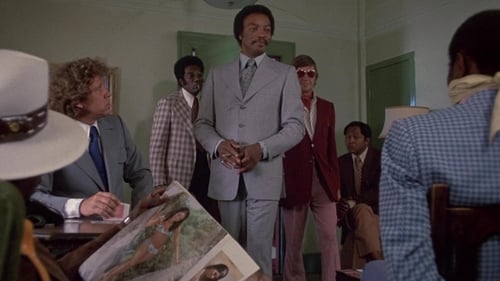
Original Music Composer
Mr. T é um homem durão que trabalha "resolvendo os problemas" no seu bairro, fazendo o trabalho que a polícia e os advogados não conseguem concretizar. Certo dia, ele é contratado para investigar misteriosos assaltos numa casa de apostas ilegais. Porém, acaba se tornando alvo e suspeito de cometer os crimes. Clássico do Cinema Blaxploitation.

Jim
A Green Beret returns home from the Vietnam war to find that a gang of murderous bikers has killed his fiancee. He calls on several of his Green Beret buddies to come and help him take revenge on the gang.
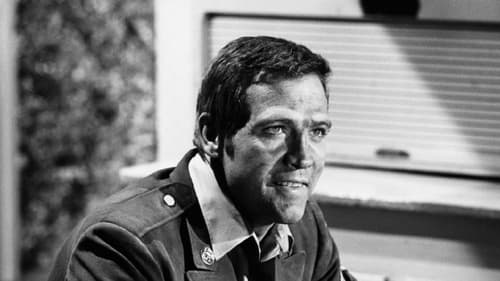
David Owens
Returning Vietnam veteran Andy Crocker arrives in his small hometown to discover his best friend and business partner has mismanaged their business into bankruptcy and his high school sweetheart has married another man. It is evident his small town has little to offer him except the hard-working life of his father, while the broader world has limited opportunities for a man who left school after the third grade.
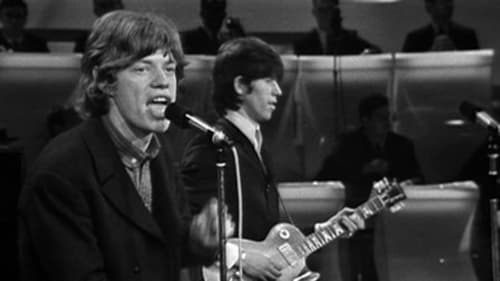
Self
Hailed by one music reviewer as "the grooviest, wildest, slickest hit ever to pound the screen," "The T.A.M.I. Show" is an unrelenting rock spectacular starring some of the greatest pop performers of the 60s. These top recording idols - representing the musical moods of London, Liverpool, Hollywood and Detroit - packed the Santa Monica Civic Auditorium with 2,600 screaming fans and virtually brought down the house. This is the cinematic record of that electrifying event.

Self (archive footage)
Archival music performances and contemporary interviews cover some of the history of Motown Records and Productions.

Himself









